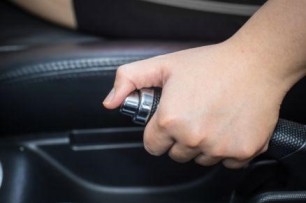General Insurance Blogs, Articles & Updates by - Magma Insurance
Have us call you
- RENEW YOUR POLICY
- BUY NEW POLICY

How early immunisation can help your infant have a healthy life
For more than five decades now, immunisation has saved billions of lives. It's a low-cost, high-impact strategy to safeguard your child's health against various diseases and infections. Immunisation builds the groundwork for a healthy future.
Vaccines are critical in protecting the most vulnerable, such as children and infants. However, one out of every five children in the world is still unvaccinated. Having the highest number of unvaccinated children, India has strengthened its efforts to enhance mass vaccine coverage with mission Indradanush 2.0.
Over the last few decades, healthcare has become increasingly expensive. A health insurance policy can come in handy during costly treatments and hospitalisations. So, look for online health insurance companies to buy a policy to secure your child's future and cover them under seamless benefits. To find out more about immunisation, continue reading this article.
What is immunisation?
Immunisation is the process that protects people against illness caused by microorganism infection (formally called pathogens) by increasing the immunity of the body to combat these infections. A vaccine is a biological substance used for immunisation.
How does immunisation work?
When immunised against a disease, your body treats it as a natural infection. A vaccine contains a microorganism that is introduced into the body in a dead or weakened form. However, your immune system has no way of knowing whether the virus is alive or dead, so it takes it as a red alert and treats it as a threat. As a result, the immune system produces antibodies to attack the virus and eliminate it from the body.
As a result, if you acquire a similar virus in the future, your immunity will be prepared to combat that virus and shield your body against its infection. According to a World Health Organization report, immunisation saves an estimated 2-3 million lives each year (majorly children) by protecting against diphtheria, pneumonia, pertussis (whooping cough), rotavirus, diarrhoea, rubella tetanus, smallpox, polio, mumps, and measles.
Immunisation has eradicated many terrible diseases that massacred people in clusters and tons. Despite this, an estimated 19.5 million infants have not received all immunisations. The need to adequately communicate the health advantages of vaccination and the risks of not immunising children cannot be overstated.
Importance of early immunisation:
Most health experts, researchers, and professional medical organisations strongly recommend immunisation. Vaccines are the most effective steps to prevent infectious diseases.
Vaccine-preventable diseases are known to induce childhood stunting, leading to poor growth, poor adult health, and lower learning ability in children. But, getting your infant vaccinated at the right time can prevent them from having to experience such situations.
Vaccinations are an essential factor in determining your children's health. Shots for children are only effective if they are given on time and according to schedule. They aid in developing children's immune systems, allowing them to grow up healthy and happy. The development of cognitive abilities is also observed after vaccination.
Alongside vaccination, it is essential to buy comprehensive health insurance for your child to secure their health and life further. You may look for online health insurance companies and browse through different plans, compare their premium, and then choose the one that fits all your requirements.
Click HERE to know more about health insurance.
Disclaimer: The information provided above is for illustrative purposes only. To get more details, please refer to policy wordings and prospectus before purchasing a policy.

Five tips for parents before they send their kids off to university
As kids turn 18, they begin to own up to their duties of seeking higher education and building a career. They get ready to set off to universities to pursue their dreams and take up multiple responsibilities as adults. This phase is often hard for parents as they won't be able to guide their children through it.
As they deal with the empty nest syndrome, they are also constantly worrying if their children are capable enough to make it on their own. As per research conducted by New York University (NYU), this rapidly changing phase in life is the best opportunity for parents to explain to their children the realities of college life. They could shed some light on the pressures of adulthood, academic expectations, varying social situations, and personal responsibilities that will soon become significant elements of their lives.
It is never too late for parents to indulge in teaching their kids some skills that will help them in the long run. Here are some tips for parents to prepare to send their kids off to university.
1. Cooking and cleaning:
After years of protective parenting, living by themselves can be challenging to adjust to. Learning how to cook a nutritious meal for themselves is key to remaining fit during these college years. Parents can teach their kids to prepare a few basic, healthy meals that should suffice them as beginners.
Cleanliness is another integral part of adulthood that reflects in daily habits. Regularly doing laundry, cleaning their living space, and washing dishes should be essential habits.
2. Healthcare and first aid:
Teaching youngsters about primary healthcare is essential. Familiarising them with the appropriate medication and basic first aid can help them in times of need. It is necessary to educate them about the importance of prioritising fitness, a healthy diet, and regular exercise.
3. Budgeting:
Parents must teach their young adults about budgeting their monthly basic needs. It's crucial to know how to allocate funds for essentials such as groceries, medicines, cleaning supplies, rent, electricity, and other personal requirements.
If they seem comfortable with the idea of employment, you can inspire them to take up part-time jobs to gain a bit of extra monetary benefit. You can also push them to take up worthy internships during their vacations to build their resumes and develop considerable skills.
4. Networking:
While in university, students have a chance to build a strong network of meaningful connections among the wide variety of people they encounter. Parents must highlight the importance of developing solid relationships with not only fellow students but also the professors and faculty members of the university. This may help them receive multiple rewards and gain opportunities to build their future.
5. Security measures:
It is vital to inform children about the basic security measures, such as avoiding any stops in lonely areas at night, covering their drinks, so they don't get spiked and keeping their belongings safe while travelling.
These minute but crucial details are essential when kids head into adulthood. Security is paramount, and prioritising it should be the kid's responsibility, not just at the university but even elsewhere.
To sum it up, while this phase of your kid moving out for university can be emotional, foresee it as a learning period that can shape the future of your children. Teaching them about how to go about their responsibilities, security, and healthcare is vital before they leave.
Apart from these essential lifestyle things, it would help to guide your children through the process of insurance planning. Securing health and assets under the umbrella of insurance adds great value and safety to our lives. For kids going to university, personal accident insurance plans are protective measures to help in accidents or emergencies!
Click HERE to buy the best personal accident insurance plans.
Disclaimer: The information provided above is for illustrative purposes only. To get more details, please refer to policy wordings and prospectus before purchasing a policy.

When should you use the handbrake while operating your car
A handbrake, sometimes known as an emergency brake or e-brake, is vital for your car's safety. We're sure you're well aware of what a handbrake is for: it holds your vehicle from rolling backwards once you've stopped. If you're new to driving, you may be confused about how a handbrake functions and when to use it. Is it only for emergencies or also for parking?
Read ahead for the answers to these questions and much more so that you can take advantage of your vehicle's most vital safety features. Another way to ensure the total safety of your car is to buy car insurance online.
How does a handbrake function?
The handbrake on a vehicle may be mechanical or electrical, based on its age, model, and gearbox. Unlike the footbrake, the handbrake is linked to the rear wheels of your automobile through a steel wire. It serves two purposes. First, it assures that you have a way to stop your car if the hydraulic brake fails. Second, it enables you to press the accelerator pedal while braking, facilitating more sophisticated driving tactics like drifting and flawless hill starts. When applying the handbrake, the metal cable goes through an intermediary gear before arriving at an equaliser, distributing power equally across the brake pads. This will eventually freeze the back wheels and cause the vehicle to come to a stop.
When should you use a handbrake?
It is all too common for inexperienced drivers to misuse their handbrake. For example, never use the handbrake while the automobile is still in motion.
You should only apply the handbrake in the following situations.
1. When parking:
Only use the handbrake when your vehicle has come to a complete stop after parking.
2. When stopping:
If you come to a halt at an intersection or a traffic signal, you should apply your handbrake. When you've come to a complete stop at a pedestrian crossing, activating your handbrake will keep your vehicle from moving forward.
3. While turning:
To prevent rolling against the curb while turning on a road that descends towards the sidewalk, proceed carefully, utilise clutch control, and use the brakes after each motion.
4. Following an emergency break:
To conduct an emergency stop, you must utilise your hand brake and, if operating a manual vehicle, then also your clutch pedal simultaneously. However, after your car has come to a complete stop, you should use the handbrake and shift it into neutral.
5. Hill starts:
After coming to a stop on a hill, using your handbrake in conjunction will keep your car from rolling backwards.
When it comes to operating your handbrake, like with any other area of driving, the more you practice, the more accustomed and confident you'll get. However, another thing to keep in mind is to buy car insurance online and save considerably in case your car faces any external damage or requires repairing and servicing. Driving without possession of insurance is against the law, and as a beginner, you'll need to have all the protection you can get.
Click HERE to buy car insurance online.
Disclaimer: The information provided above is for illustrative purposes only. To get more details, please refer to policy wordings and prospectus before purchasing a policy.

The complete guide to rock climbing for beginners
Rock climbing is an exciting adventure sport and a great way to stay fit. Today, several gyms incorporate rock climbing within their space settings to help people exercise and strengthen their bones and muscles. Many parents encourage their kids to try rock climbing established in recreation and amusement parks. Mountain climbing and mountaineering are different disciplines that come under rock climbing.
Rock climbing comes with its set of challenges. It requires expensive gear and training, which may not be readily available everywhere. Also, there is a degree of risk associated with the sport, given that you will be working with ropes and harnesses at certain heights. Safety is paramount while rock climbing. So, it is advisable to train formally before climbing in natural settings such as mountains, rocks, etc.
This blog will provide you with the complete guide to rock climbing for beginners. You will learn how to get started and various essential tips you'll need to know.
1. Gear:
Stop splurging on renting gear for climbing if you have decided to pursue it regularly. Purchasing your equipment is a wise long-term investment that will prove to be helpful. Also, check which gear you need as a beginner. You don't have to buy the ‘advanced’ level of equipment when you are just starting with rock climbing. Initially, you'll need climbing shoes, chalk and chalk bag, harness, headgear (helmet), etc.
2. Routine:
Now that you have decided to attempt rock climbing, you need to form a routine. Find time to practice regularly and seriously. To accomplish that, you can join a gym with rock climbing facilities or a training institute that provides regular rock climbing courses. Your trainer/coach can help you get familiar with the workouts, the footwork, etc., to develop the strength required for the sport.
3. Ease into the process:
You need to build a strong foundation before starting a more advanced stage in rock climbing. Give your body time to adapt to the different physical and mental stress levels of learning rock climbing. Pushing your body to do strenuous work can cause severe injuries or soreness in muscles, making it difficult to continue with the learning process.
4. Warm-up:
Warm-up exercises can help reduce the probability of severe injuries. These exercises boost your energy by pumping blood into your muscles. Your body can then accommodate different stress levels with ease while practising climbing. Some warm-up exercises include jumping jacks, squats, arm, wrist, ankle and foot circles. After these, you can head off to practice light and easy climbing, increase the intensity as instructed, and to the extent your body allows.
Rock climbing sounds intriguing. But as we discussed, it comes with a particular risk that can lead to severe injuries, harming your body in the process. While that seems quite unfortunate, a wise option to safeguard yourself is exploring the insurance market and purchasing the best personal accident policy in India to cater to all your needs. Insurance becomes helpful if the policyholder meets with an accident and requires medical care. So invest wisely and make your rock climbing journey hassle-free.
Click HERE to know more about how you can buy the best personal accident policy in India.
Disclaimer: The information provided above is for illustrative purposes only. To get more details, please refer to policy wordings and prospectus before purchasing a policy.

